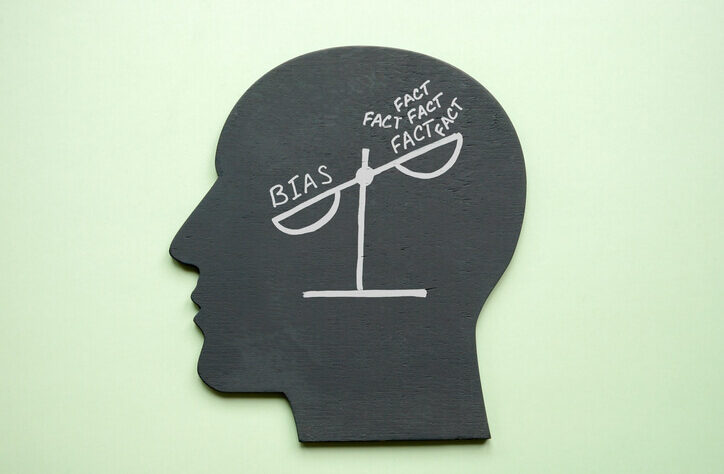
Imagine working diligently for years at a company, consistently exceeding targets, and receiving commendations from colleagues. Yet, each time promotions are discussed, you find yourself passed over. This recurring pattern might not just be bad luck; it could be a case of unconscious bias subtly influencing decision-making, affecting not just careers but everyday workplace dynamics.
What is Unconscious Bias?
Unconscious bias refers to negative and positive stereotypes that exist in our subconscious and affect our behavior without us realizing it. Bias can manifest in several ways:
- Associative bias: Connecting specific attributes to particular groups, such as leadership with men.
- Confirmation bias: Seeking information that confirms pre-existing beliefs or stereotypes.
- Social comparison bias: Favoring individuals who share similar characteristics with oneself.
- Affect heuristic: This is a psychological term for making decisions based on emotions associated with personal experiences or stereotypes rather than objective evidence.
- Gender bias: Assumptions about roles and abilities based on gender, often seen in job assignments and promotion opportunities.
- Age bias: Underestimating older employees’ capabilities and resistance to hiring younger staff for senior roles due to perceived lack of experience.
These biases can significantly impact workplace interactions and decisions, from hiring to performance evaluations, and can subtly influence the workplace culture, creating an environment that can be unintentionally exclusive.
When Does Bias Become Discrimination?
It’s critical to understand when seemingly innocuous bias crosses into the territory of discrimination:
- Consistency in decisions: Repeated patterns of favoritism or adverse decisions against specific groups.
- Impact on opportunities: When biases restrict individuals’ professional growth or job opportunities.
- Exclusionary practices: When informal networks within the workplace exclude certain groups from social interactions, which can affect professional opportunities.
- Hiring and promotions: If recruitment or promotion criteria are subtly tailored to favor certain demographics, it could constitute discrimination.
In short, discrimination occurs when actions based on biases violate equal employment opportunity laws. Identifying these indicators can help employees recognize when they are facing not just bias but actionable discrimination.
How Federal and New York Laws Protect Workers Against Discrimination
Both Federal and New York laws provide frameworks to protect employees from discrimination, ensuring a fair workplace:
- Federal protections: Laws like the Civil Rights Act (Title VII), Americans with Disabilities Act (ADA), and Age Discrimination in Employment Act (ADEA) address various forms of workplace discrimination.
- New York State laws: The New York State Human Rights Law and New York City Human Rights Law extend these protections, often providing broader coverage than federal laws.
These laws also tackle discrimination that may stem from unconscious biases, not just overt actions.
When to Call an Attorney
If you feel your career progression is hindered by discriminatory practices, consulting with an attorney can clarify your situation and outline potential steps. An attorney can provide guidance on documenting incidents and gathering necessary evidence, which is vital for any potential legal action.
Notably, an employment lawyer can assist in filing claims with the Equal Employment Opportunity Commission (EEOC) or state agencies and, if necessary, pursue cases in court. Your attorney can also offer strategies to address and rectify the discrimination, potentially including negotiation for settlements or other resolutions. Lipklsy Lowe is here to help you navigate through complex scenarios and advocate for your rights.
Fight Back Against Unconcious Bias in the Workplace
Do not let hidden biases derail your career or personal growth within your workplace. If you suspect that unconscious biases are impacting your professional opportunities, it’s time to speak up. Talk to an employment lawyer today to protect your rights and begin creating a fairer work environment.

